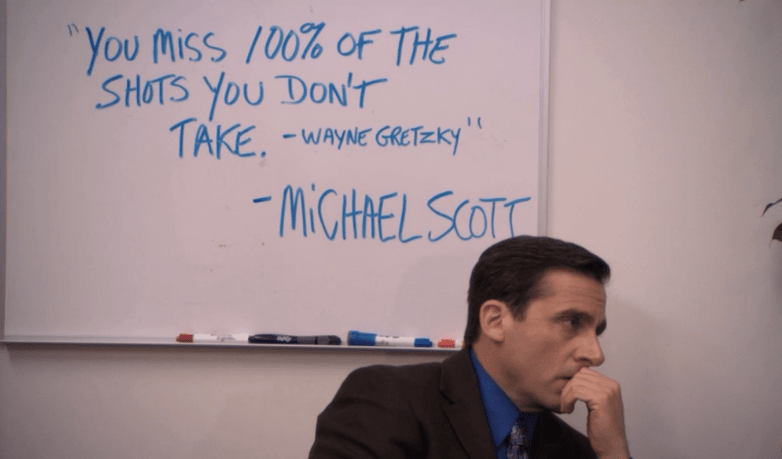Don't Be Evil
I recently received a message from a former intern who is now at a career crossroads.
He's a super talented guy, weighing up several good options.
His dilemma boils down to this:
“Do you think (the popular company I’m interviewing with) are evil?
Many of my friends are surprised I’d work there, viewing them as an evil company”
What a great question!
He’s asking because I’d told him about my own similar experiences, as I slowly realised that whilst my employer was impressive, it wasn’t exactly good.
Let’s go back to the fundamentals.
Diagnosis
In westerns, villains wore black hats.
The Sith have red lightsabers, Jedi have green and blue.
Bond villains operate out of hollowed-out volcanoes.
Movies make it immediately clear who you’re dealing with.
Companies aren’t that straightforward.
There are very few categorically Good companies, or outright Evil companies.
Yes, you can probably name a few of each, but you’ll find others out there who disagree with you. Consensus is impossible.
Where do you put a suburban accounting firm, or a mechanic, or an SEO consulting group?
95% of companies fall in the grey area in the middle – at least, they do at first.
It’s not simple, so we’ll need to gauge their impact.
Try asking these questions:
Does this company make people’s lives better, or worse?
Is someone exploited because of how the business operates?
Would I speak openly about how they behave and how they make decisions?
Remember, this isn’t exclusively about companies that actively create damage.
It’s also about companies that passively let problems continue in order to keep making profits.
Context and Intentions
Some alcohol businesses are evil – preying on addiction and the vulnerable people who abuse it.
For many families, alcohol is the source of their pain: tearing apart relationships, driving them into debt, and contributing to family violence.
Horrific stuff.
That said, I’d be very happy to work at a rural Scottish whiskey distillery, surrounded by people passionate about the craft, creating a high end, world class product.
The difference is the predatory nature; who you target and how they use your product.
Fashion is similar – it can be used to empower women in the developing world, or used to enslave them and their children in sweatshops.
That’s why it’s worth digging – seeing if their supply chain leads back to somewhere like Rana Plaza in Bangladesh, where workers live in terrible conditions for almost no money.
You’ll often find two companies in the same industry, whose attitudes are worlds apart.
For me, it comes down to a willingness to mistreat people or the planet, in exchange for financial gain.
Everyone has their own “line”, and it’s important to know where yours is.
I am the first to admit that mine is irrational and weird – I am uncomfortable with K-mart’s $4 T shirts, but I happily wear Nike, whose worker conditions are better, but not amazing.
Skeletons
Every company has critics, and every company has made mistakes.
Therefore, we can’t rule them out just because an outspoken person on a Whirlpool forum said they made a bad call in 2007.
The question is, do you believe that you’ll be asked to make exploitative decisions in the coming years?
Keep in mind, these decisions aren’t made by villains who cackle and rub their hands together.
They’re made by normal people who are just trying to do their job.
This occurs for two reasons:
Direct personal gain – “If I do XYZ, I will get a bonus and can buy a Porsche.”
Creating shareholder value – “We are obliged to serve our shareholders, so to earn decent profits we need to take action, and sometimes that includes doing XYZ”
It’s easy to criticise the first one, but we tend to celebrate the second.
That’s how evil happens.
Not through malicious intent, but by gradually bending our ethics in the name of “Shareholder Value”
I personally experienced this at a former role – tasked with finding ways to make 10 of our colleagues redundant through outsourcing and system redesign.
Workers in Bangalore do the job for 90% less salary, and the company wanted to take advantage of that fact.
We had to be deceptive, interviewing their team to learn how they operated, not telling them our true purpose.
The project was a success, cutting 8-10 jobs and saving the company $600,000.
Simultaneously, this was done across the whole division, with over 2,000 jobs lost in a matter of weeks, whilst the company set record profits.
Meanwhile, we had Greenpeace protesting outside with a giant inflatable nuclear power plant, as our company had made huge investments in coal and nuclear power.
I get the desire for efficiency, I get the need for cost savings.
It was the disregard for people and planet that unnerved me.
The idea that the person sitting at the next desk over was plotting to get rid of you.
The idea that any investment with a high enough return is worth doing, irrespective of its impact.
How can you build a positive culture without trust?
How can we talk about a better world whilst actively destroying it?
Problem Solving
Your career is essentially you solving a series of problems.
Teachers help students better understand the world we live in.
Carpenters fix buildings and improve people’s homes.
Bookkeepers make sure everyone gets paid on time and in the right amount.
Engineers improve unsafe infrastructure and speed up processes.
The more/bigger problems you can solve, the more valuable you are as a team member.
So the question is, who do you want to solve problems for?
Whose business will be better because of your input?
Personally, I’d be uncomfortable helping companies who are looking to block the sale of electric cars, monopolise natural resources, make cigarettes appealing, create gambling addictions, clear forests, defend cage farming and preserve the use of slave labour.
It would feel like I’m helping the villains, those who look to profit at the expense of their customers, their workers, or the environment.
The most satisfying careers are the ones where you can see how your work has solved good problems, made a positive difference, and genuinely helped someone (even if they don’t realise it).
And the more intelligent, created and talented you are, the more we want to have you fighting for good things.
Change From The Inside Out
A tempting option is to join a questionable company, in order to change it from the inside.
By influencing their decision making, you can do more good than if you stand outside and protest.
I’ve seen this done well and I’ve seen it fall flat.
One internal champion within National Australia Bank fought hard for the creation of microloans, grants and impact investment funds.
Her tireless work nudged a huge company towards something really beneficial.
She credits her father’s advice for shaping her mindset, which to paraphrase:
“Instead of chaining yourself to the tree, learn how to steer the bulldozer”.
What fantastic advice.
This approach sometimes works, but often at great personal expense.
Fighting against your company is tiring and demoralising.
You risk having the “Mean Girls” issue where you slowly become acclimatised to the behaviour you previously detested.
Tradeoffs
So now we get to the toughest issue: saying no to temptation.
Evil is often profitable.
Economically, it almost HAS to be profitable, or else it wouldn’t exist.
If there were no vested interests, we probably wouldn’t have the moral issues that plague our world today – cigarettes, landfills, sweatshops, puppy farms, slavery, etc.
If it were cheaper to pay proper wages, or farm free range, or sell non-carcinogenic products, why would we not make the switch?
These industries make a lot of money, and will make someone wealthy.
They’ll offer higher salaries, career advancement, status, prestige, company cars, corporate retreats, even the occasional act of “Corporate Social Responsibility”.
Tradeoffs are about saying “No” to something good, to say “Yes” to something better.
I personally don’t like the idea of trading off my ethics for money. I’m not content with the whole “Build your wealth by any means necessary, then give back when you retire” approach.
You get to make your own call.
Ask yourself, what could a company offer you to in order for you to put aside your morals? There’s probably a scenario, I get it.
But hopefully it’s not a small number or a petty offer. Hopefully your ethics are worth a lot.
You can use that thought process to evaluate your career options.
Firstly, are you comfortable with the decisions and behaviour that are expected of you?
Secondly, call it what it is: Are there other factors shaping your decision?
$10k more per year?
A more prestigious title?
Driving a BMW X6?
Then, compare the two together.
How much are you bending, and why?
So...
I suspect as you read this, you know in your gut whether this is the right move.
I’m going to guess that this is really a fight between your moral instincts and your drive – and both are good.
There’s no definitive list of “Good and Evil” companies that can make this decision.
All I’m doing is giving you some terminology to make the options clearer, so that you can make the decision that’s right for you.













